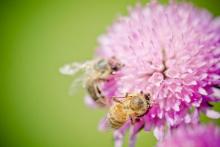Where To Shop: Buying Untreated Plants
2014 saw public outrage as up to 51% of plants sold at Walmart, Home Depot, and Lowe's contained neonics at levels harmful to bees. What’s more concerning is these were the plants that were labeled as ‘bee friendly.’ In response to the public pressure created by these harrowing results - and a general trend toward concern for pollinators in the recent years - many larger chains have started to phase out neonicotinoids.




